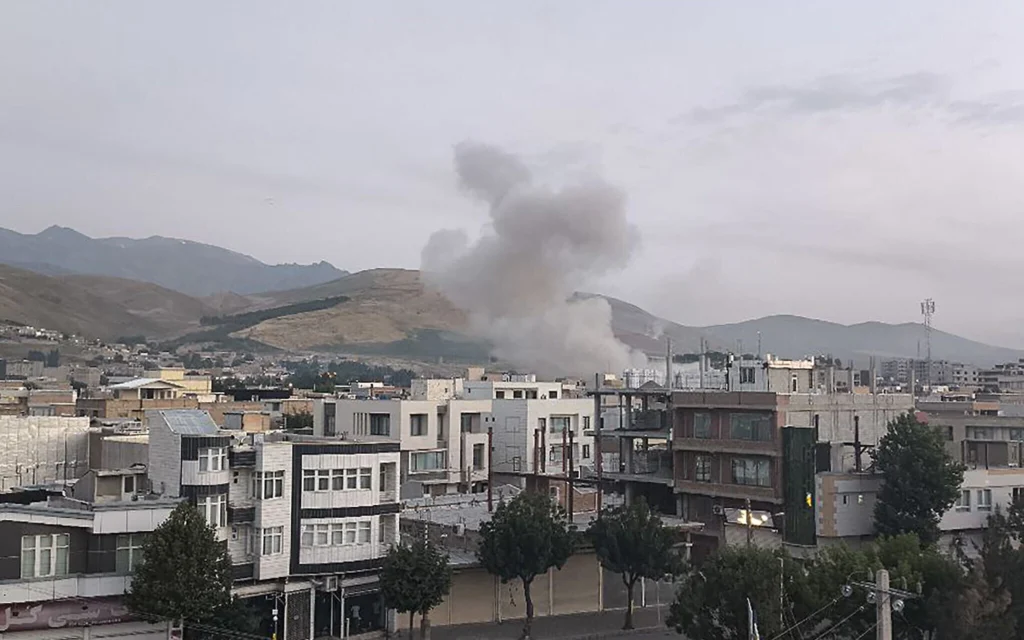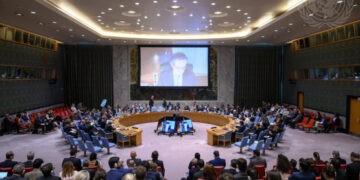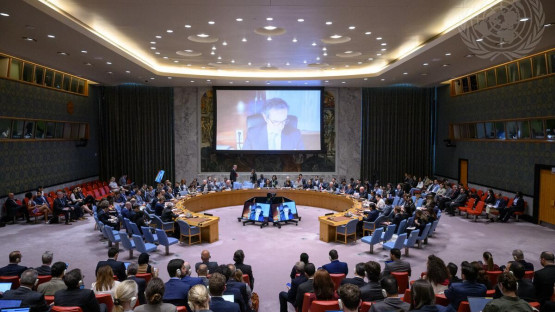Vienna, Austria – The International Atomic Energy Agency (IAEA) Director General, Rafael Mariano Grossi, has issued a grave warning to the UN Security Council following military strikes by Israel on nuclear facilities in Iran, emphasising that such attacks pose serious risks to nuclear safety, regional stability, and international security.
In an urgent briefing to the Council, Grossi confirmed that the International Atomic Energy Agency had been notified early Friday of Israeli airstrikes targeting nuclear infrastructure in the Islamic Republic of Iran. The most significant damage occurred at the Natanz Fuel Enrichment Plant, where the above-ground Pilot Fuel Enrichment Plant and critical electrical systems were destroyed. Iran has been enriching uranium up to 60% U-235 at this facility.
“The level of radioactivity outside Natanz remains at normal levels,” Grossi said, indicating no immediate radiological impact on the surrounding population. However, he noted that internal contamination had been detected, primarily involving alpha particles, which he described as manageable with proper safety protocols.
The IAEA is still assessing reports of additional strikes near the Fordow Fuel Enrichment Plant and Esfahan nuclear site, where other sensitive fuel processing and uranium conversion facilities are located. As of Friday afternoon, Grossi said, the agency lacks comprehensive data on these locations but has verified military activity around them.
“These developments are deeply concerning,” he said. “I have repeatedly stressed that nuclear facilities must never be targets of military action—under any circumstances. Doing so risks catastrophic consequences not just for one nation, but for an entire region and the world.”

Grossi cited past IAEA General Conference resolutions that define attacks on peaceful nuclear facilities as violations of the UN Charter, international law, and the IAEA Statute. He reminded the Council that such actions can cause radioactive releases with potentially severe cross-border effects.
Calling for “maximum restraint,” Grossi urged all parties involved to avoid further escalation. “Any military action endangering nuclear safety and security may lead to consequences beyond imagination,” he warned.
He reaffirmed the IAEA’s commitment to its mandate of monitoring nuclear safety, security, and safeguards. The Agency’s Incident and Emergency Centre remains in constant contact with Iranian authorities, and a dedicated task force has been activated to provide real-time oversight and assistance.
Grossi also offered to dispatch nuclear safety and security experts to affected areas and reiterated his willingness to travel to Iran personally for an on-ground assessment.
“Our inspectors are in place in both Iran and Israel,” Grossi noted, emphasising that ensuring their safety is a top priority.
Despite the volatile situation, Grossi ended his address with a call for diplomacy. “Dialogue—not confrontation—is the only viable path forward. The IAEA remains a neutral and credible platform where facts can guide peaceful solutions.”











